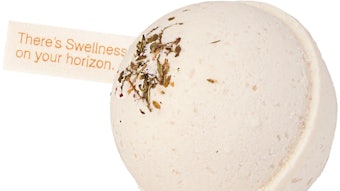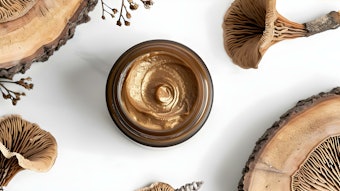
“Wellness” is a word most have become accustomed to reading, hearing and even saying. “Holistic wellness” is rapidly becoming a well-known phrase, as well, but these are both vague terms that can cause confusion. So, what is wellness anyway? Wellness, as defined by www.dictionary.com, is “The quality or state of being healthy in body and mind, especially as the result of deliberate effort.” Wellness refers to a person’s overall state of being; holistic wellness implies that everything affects everything else. So smoking a cigarette, for example, not only affects lung function—but also skin function.
There are many components of holistic wellness. A client’s lifestyle affects the skin and her overall health. It is well known that the skin is the body’s largest organ and that any problems a client is experiencing internally usually show up on the skin first. Skin often indicates that something is out of balance. Although the selection and appropriate use of skin care products are crucial for optimum skin health, it is also important to look more closely at what is occurring externally and internally. Along with topical products, nutrition, stress levels and sleep patterns also play a role in a client’s health. (See Business-building Wellness Ideas.)
Natural skin care products
Professional and retail natural skin care products abound these days as a result of increasing consumer desire. Natural skin care products were hidden among a sea of traditional products 10–15 years ago. Educate your clients to look for products that contain ingredients such as salts and sugars; beneficial oils, such as olive, coconut and almond; cocoa and shea butters; and pure essential oils. Even better, choose a natural line of professional products to use in the backbar and retail area of your skin care facility.
Nutrition
Nutrition is critical to skin and overall health. The human body is a well-oiled machine, and feeding it nutritionally dense foods is extremely important. Eating a diet that mostly comes from nature is a surefire way to ensure health and, when clients are healthy from the inside, it shows on the outside through radiant skin. The most nutritional benefit comes from natural ingredients because they are chock-full of vitamins, minerals, enzymes and antioxidants, all which contribute to well-being. An easy-to-remember general rule of thumb is: If it comes from a plant, eat it; if it is made in a plant, don’t. Consider your client’s habitual diet during her skin care analysis and encourage the consumption of a diet rich in fruits; vegetables; whole grains; nuts; seeds; legumes; healthy fats, such as olive and coconut oils; and naturally occurring proteins. Even when eating a healthy diet, there can be holes in nutritional intake, so it is advisable to look into supplementation of digestive enzymes, amino acids, trace minerals and vitamins. Encourage your client to work with her physician in order to identify the best supplement options for her.
Another key component of nutrition is water consumption. People usually think of water as separate from nutrition, but it is actually part of the complete nutritional picture. Proper hydration is critical for skin function, health and vitality. The Institute of Medicine determined that an adequate intake of fluid for men is about 13 cups of total beverages a day and about nine cups of total beverages a day for women. A key question during your skin care analysis should be how much water your client drinks each day.
Water consumption also serves another vital function in skin and overall health, which is detoxification. Water carries waste (toxins) out of the body and the less toxic buildup that is in the system, the clearer the skin. People are constantly exposed to toxins in water, air, personal care and household products, chemicals in and on food and through building materials. Toxins are a part of life in the modern world. The body works hard to clear out toxins, but it is typically not enough, and toxicity buildup can take place in the body, affecting overall health and showing up as skin issues. Regular detoxification is a useful tool in maintaining health and can be done in a variety of ways, including intervals of fasting, juicing and raw food diets. Nurture a professional relationship with an area nutritionist, so that you can confidently recommend clients to that person for nutritional assistance. Topically, recommend that clients seek skin care products and ingredients that detoxify and purify the skin.
Stress
Part of health that can be harder to gauge is stress, but it is important to do so because stress absolutely affects skin and overall health. When clients are chronically stressed, there is an overload of chemicals that wreak havoc on the body and mind. Chronic stress is also linked to illness and disease, such as an increased chance of stroke and heart attack, as well as a compromised immune system, which leaves people susceptible to an array of health issues. Stress management is vital to well-being, and techniques that work vary from person to person. Your client is the only judge of her stress levels and what works to decrease her stress. It is important to her your clients help their stress levels and find tools that reduce—and hopefully eliminate—stress. Some methods to try include yoga, meditation, therapy, coaching, massage, energy work, time with loved ones, exercise, deep breathing, hobbies, time in nature, petting companion animals, reading, journaling, visioning and laughing. Take your client’s stress levels into consideration and encourage them to seek out stress-relieving activities. You can also help to relieve a lot of their stress in the treatment room by incorporating relaxation techniques into your services, such as scalp massage, energy work and breathing exercises.
Sleep
Sleep patterns are another key component in relation to health. Lack of sleep can have similar effects as chronic stress. The body and mind need rest in order to heal and rejuvenate. It’s akin to taking time off of work. Even if you are in your dream job, you wouldn’t enjoy it as much if you worked nonstop. You need time off. Sleep is a similar concept. People need an average of 6–9 hours of sleep per day. If you’ve never done so, try sleeping in varying lengths and determine when you feel your best, have the most energy and are the most productive. Many factors can contribute to restful sleep, or lack thereof, including mattress, pillows and bedding, room temperature and light, as well as the noise levels in your sleep environment. Take steps to help clients create a space in which you can get your best sleep and other areas of your life will improve. Informing clients about sleep deprivation gives them another tool to use along their path to wellness.
Create targeted treatments
It is clear that focusing on holistic wellness not only improves clients’ lives overall, but also improves skin health and function. Set yourself and your team apart as skin care professionals by taking the time to educate yourself on holistic wellness and then using that knowledge to create more targeted treatments for your clients.
Lila Shanti Pettyjohn is a licensed esthetician, certified professional coach, certified wellness coach and certified Reiki practitioner. She owns A New Leaf Wellness, a holistic healing practice where she uses her varied skills to help clients heal mind, body and spirit. Pettyjohn also has a line of handcrafted, natural bath and body products. She can be contacted at 318-294-5926 or [email protected].










